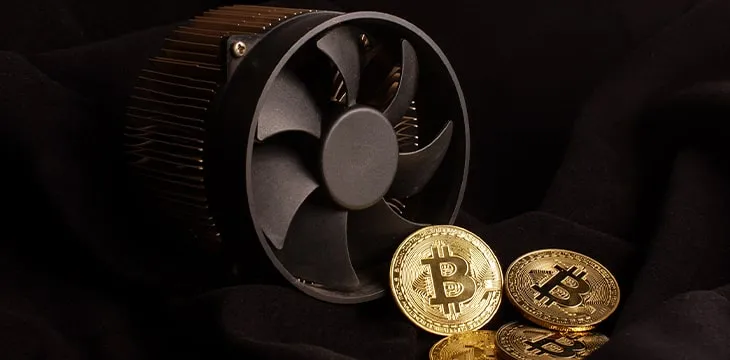|
Getting your Trinity Audio player ready...
|
On August 17, the United States Committee on Energy and Commerce has sent letters to four digital currency miners, Core Scientific (NASDAQ: CORZ), Marathon Digital Holdings (NASDAQ: MARA), Riot Blockchain, Inc. (NASDAQ: RIOT), and Stronghold Digital Mining (NASDAQ: SDIG), looking for more information on Proof-of-Work mining and the impact it has on the environment.
The core questions that the committee had for each company revolved around the company’s energy usage in 2022, its sources of energy and, the percentage of that energy that is offset by renewable energy credits, how many days in the year the company shuts off its operation to support grid stability, and the cost per megawatt hour and profit per megawatt hour that each of the businesses has.
NEW: E&C leaders sent a series of letters to cryptomining companies today demanding answers on what they’re doing to mitigate their energy use and offset their climate impacts. Read more here 👇 https://t.co/YDemVtZkVE
— Energy & Commerce Democrats (@EnergyCommerce) August 17, 2022
This recent letter to the four mining companies is noticeably less harsh than previous letters that Congress and its various committees have written to Proof-of-Work mining companies in the past. This letter even acknowledges that blockchain technology can have a positive impact on the world.
“Blockchain technology holds immense promise that may make our personal information more secure and economy more efficient. However, the energy consumption and hardware required to support PoW-based cryptocurrencies may, in some instances, produce severe externalities in the form of harmful emissions and excess electronic waste (e-waste),” says each letter.
From that point on, the letters are tailored to each of the companies it addresses, but the committee generally has the same concerns regarding each mining operation. It worries that the miners are putting stress on power grids to drive up demand and incentivize electricity providers to turn to fossil fuel generators. The committee also worries that the expansion plans that each of the mining companies has for the future will exacerbate e-waste, which is the discardment of electronics such as computers and other electronic devices as they reach or near the end of their useful life.
The committee fears that Proof-of-Work mining operations will hinder its goal for the United States to reduce greenhouse gas (GHG) pollution by 50% from 2005 levels by 2030 and reach net zero GHG pollution no later than 2050. But still, the committee notes that blockchain technology could lead to advancements that help the United States reach its energy goal.
“While blockchain technology is emerging as a potentially important tool in fighting climate change, increasing demand on the grid and burning more fossil fuels to power PoW cryptomining facilities only serves to undermine the potential climate benefits of blockchain technology and hold us back from achieving our climate pollution reduction goals,” the letters state.
It’s a good sign that the committee is aware of the positive externalities of Proof-of-Work mining. But regardless, the committee is still looking for Proof-of-Work mining operations to become more energy efficient. The letters end with the signatures from the four U.S. representatives that spearheaded this initiative, Frank Pallone (D-NJ 6th District), Bobby L. Rush (D-IL 1st District), Diana DeGette (D-CO 1st District), and Paul D. Tonko (D-NY 20th District), and the message that each company has until September 17 to respond to the Committee. Lawmakers will most likely use the information each company provides to influence their policies and the potential reporting requirements that many miners will need to abide by.
Watch: The BSV Global Blockchain Convention panel, Blockchain mining & energy innovation
https://www.youtube.com/watch?v=z07TPyXw2OE

 07-12-2025
07-12-2025 





